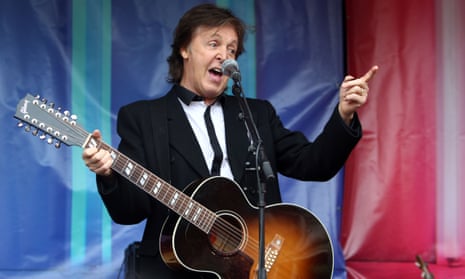Google, YouTube and Facebook could escape having to make billions in payouts to press publishers, record labels and artists after EU lawmakers voted to reject proposed changes to copyright rules that aimed to make the tech companies share more of their revenues.
The proposed new rules, which have been going through the European parliament for almost two years, have sparked an increasingly bitter battle between the internet giants and owners and creators of content, with both sides ferociously lobbying their cause.
Press publishers, record labels and artists, including Paul McCartney, believe the new rules will “right a wrong” and ensure the Silicon Valley giants are made to pay what they feel would be a fairer amount – to close a so-called “value gap” – for exploiting their content to build their own businesses.
More than 1.3 billion users of Google-owned YouTube regularly watch music videos, making it the biggest music service in the world. However, artists receive only 67 cents per user annually in royalties.
Campaigners against the proposals, including high-profile names such as the Wikipedia founder, Jimmy Wales, the world wide web inventor, Tim Berners-Lee, the net neutrality expert Tim Wu and the internet pioneer Vint Cerf, claim they would start to transform an “open platform for sharing and innovation into a tool for the automated surveillance and control of its users”.
One of the most contentious components of the copyright directive is article 11, dubbed a “link tax” by critics such as the Green MEP Julia Reda, who is leading opposition to the proposals. This would force news aggregation and search sites such as Google to pay publishers for showing news snippets or linking to news stories on other sites.
Another is article 13, which would make platforms such as YouTube seek direct licences for content such as music videos, which artists say would allow them to properly negotiate better royalties.
A total of 318 lawmakers voted against opening talks with EU countries based on the proposal, while 278 voted in favour and 31 abstained.
The full European parliament will debate amendments to the copyright directive in September.
Axel Voss MEP, who is championing the copyright changes, attacked the “massive scale of false arguments” made by lobbyists against the proposals.
“Whether they have been intentional or just a result of the lack of information, they managed to create an atmosphere that the internet is about to collapse,” he said.
“Nobody in the European parliament wants to establish censorship, filters, a link tax or the restriction of the freedom of speech. Those who imply differently are consciously spreading fake news and are acting solely in the interest of big online platforms.”










